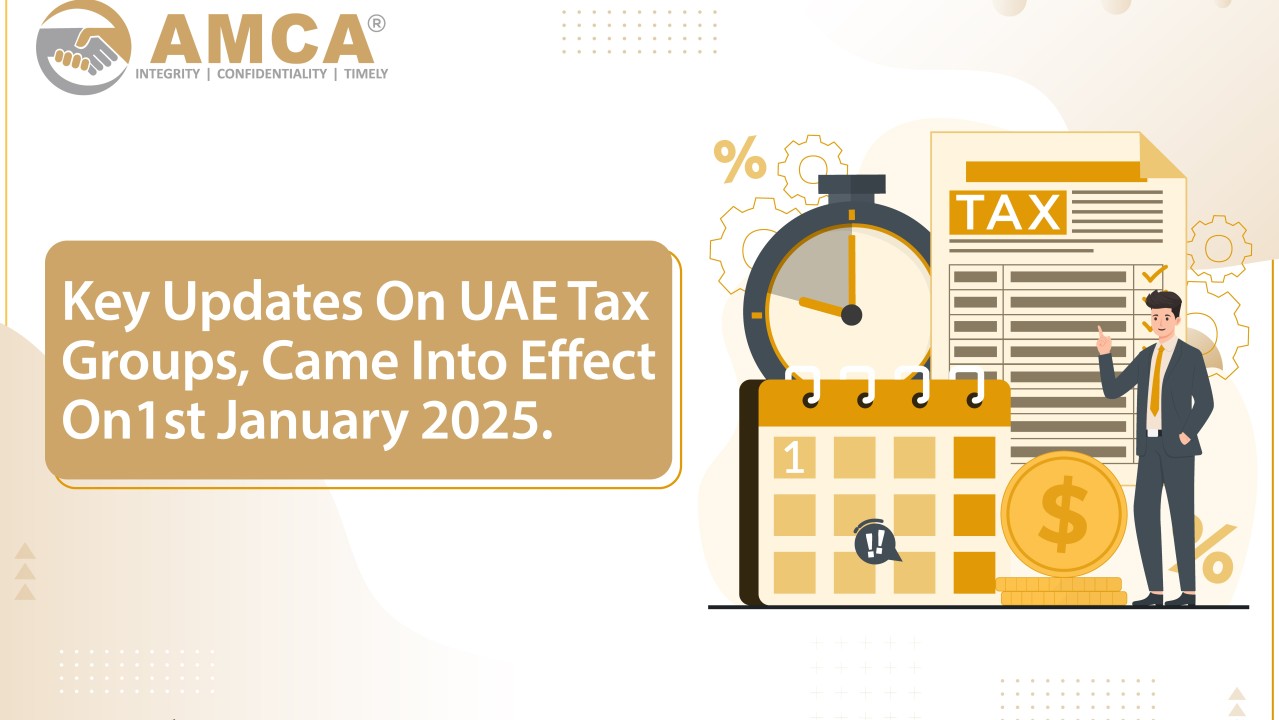.jpg)
21 Feb 2025
How to Set Up a Crypto Accounting System for Your Business
The rise of cryptocurrency has revolutionized how businesses operate, offering new opportunities for growth and innovation. However, it also brings unique financial complexities that can be challenging to manage. An effective crypto accounting system and an experienced cryptocurrency accountant help ensure accurate financial reporting, compliance with tax regulations, and informed decision-making for your business. With the expertise of a reliable accounting firm like AMCA, you can ensure compliance with tax regulations and effectively manage your accounts.
Cryptocurrencies in the UAE
The governing and supervision of cryptocurrencies and virtual assets within the UAE are assigned to certain authorities that ensure adherence to global best practices while fostering innovation. These authorities are as follows:
• Securities and Commodities Authority (SCA)
The Securities and Commodities Authority (SCA) has the responsibility of overseeing, supervising, and regulating the virtual assets (including crypto) within the UAE. It ensures compliance with the established standards, protects investors, and enhances the legislative framework of virtual assets
• Central Bank of the UAE (CBUAE)
The Central Bank of the UAE (CBUAE) oversees the Licensed Financial Institutions (LFIs) and Registered Hawala Providers (RHPs), including their roles as financial service providers for Virtual Assets Service Providers (VASPs) and non-VASP customers who may engage in virtual asset transactions.
• Virtual Assets Regulatory Authority (VARA)
The Virtual Assets Regulatory Authority (VARA) was established in March 2022 and is the first regulatory authority of its kind in the world dedicated to overseeing virtual assets.
VARA, established in Dubai, is the first regulatory authority of its kind in the world dedicated to overseeing virtual assets. VARA’s framework includes robust measures for consumer protection, market integrity, and the prevention of illicit activities.
Along with these, the Financial Services Regulatory Authority (FSRA) regulates the VASPs in the Abu Dhabi Global Market (ADGM), and the Dubai Financial Services Authority (DFSA) regulates VASPs in the Dubai International Financial Centre (DIFC).
Accounting for Cryptocurrency: International Financial Reporting Standards (IFRS)
The International Financial Reporting Standards (IFRS) establish a comprehensive global framework for financial reporting that is relevant to the field of cryptocurrency accounting. While there is no specific IFRS standard dedicated solely to cryptocurrencies, several standards offer guidance on their treatment, including IAS 38 – Intangible Assets, IAS 2 – Inventories, and IFRS 13 – Fair Value Measurement. Following these standards ensures that financial statements correctly represent the value and performance of cryptocurrency assets, offering stakeholders trustworthy information.
How to Set Up Cryptocurrency Accounting Software?
• Understand Your Business’s Crypto Needs
Examine and evaluate the objectives and uses of crypto accounting for your business. For example, consider the type of cryptocurrency you are handling. Understanding these factors will help you tailor your crypto accounting software and crypto tax software to your specific needs.
• Choose the Right Crypto Accounting Software
Crypto accounting software enables you to automatically track transactions, do complex calculations, and provide detailed reports. When selecting this software, look for multi-currency support, tax compliance, and security features.
• Crypto bookkeeping & recording transactions accurately
Maintaining accurate crypto transactions is significant for maintaining financial transparency and ensuring compliance. Accurate details include the date, type, amount, and exchange rate of transactions. For effective record-keeping of transactions, accounting software and crypto tax software with automated tracking can reduce the likelihood of manual errors and save time.
• Monitor Valuations and Currency Fluctuations
The market value of cryptocurrency can fluctuate, which is why closely monitoring valuations is integral to managing risks and making informed business decisions. Update your records to reflect current valuations for assessing your financial position and managing potential risks.
• Stay Compliant with Tax Regulations
Complying with the UAE framework of regulations regarding virtual assets, including cryptocurrency, is essential to avoid penalties. Understanding UAE tax laws, classifying transactions, and working with a tax professional like AMCA can help you avoid errors and recognize any exemptions or deductions.
• Perform Regular Audits
In order to reduce the risk of financial mismanagement and enhance transparency, conducting regular audits of your crypto transactions is essential. These audits will assist you with errors or inconsistencies, enhance accountability, and prepare you for external audits.
Setting up a crypto accounting system is essential for businesses embracing the digital currency era. By following these steps, you can create a robust framework that ensures financial transparency, compliance, and accurate decision-making. If you’re unsure about any aspect of crypto accounting, consult a firm like AMCA with experience in cryptocurrency management to get tailored advice for your business.
Expert Crypto Accounting Services for Financial Compliance: AMCA
If you’re looking for expert crypto accounting services to ensure compliance, AMCA is here to support you. AMCA provides several crypto financial services, including crypto tax filing, crypto tax services, crypto bookkeeping, and crypto business setup. Our team of experienced crypto accountants and crypto tax accountants can help you navigate the complexities of crypto transactions, ensure compliance, and provide tailored financial solutions for your business.
Contact AMCA today and schedule a 30-minute free consultation: +971 4 240 8784
Read More: Bookkeeping Trends to Watch in Dubai in 2025
Read More: Top 8 Audit Firms in Dubai
Read More: Bookkeeping Tips for Startups to Maintain Positive Cash Flow
Read More: The Essential DIFC List of Auditors: Ensuring Financial Transparency and Compliance


.jpg)

.jpg)